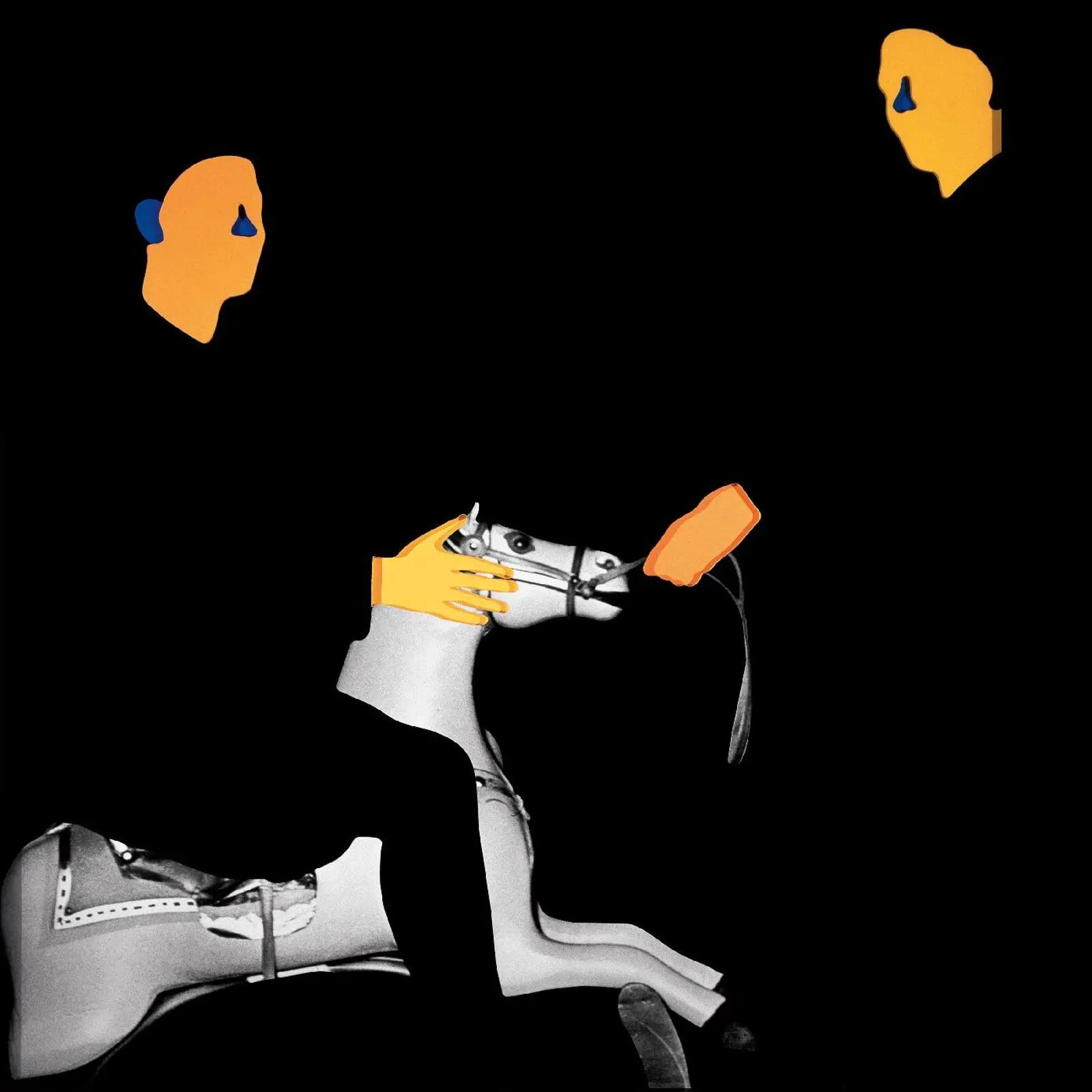
Interview MGMT: A Golden Age
With a new generation of listeners tuned into their next moves, MGMT are relishing the moment with an album - ‘Loss Of Life’ - that looks for the light amongst the world’s darkness.
Call it a case of eerie presience or just a splash of fortuitous pessimism on the part of their earlier selves but, as lockdown hit in 2020, MGMT suddenly found the title track of their two-year-old album ‘Little Dark Age’ thrust into the spotlight. A fourth LP rooted in paranoia and a very modern form of social media-affiliated unease, its crotchety yet catchy lead single became an unlikely TikTok trend; more than a decade after Andrew VanWyngarden and Ben Goldwasser had scaled their mainstream peak with the global smash of sparkling debut ‘Oracular Spectacular’, they found themselves with a second commercial resurgence on their hands.
“We were just watching in awe,” giggles VanWyngarden, sat on the sofa of his family’s house in Memphis. “I think it’s pretty funny that a lot of the themes on the album are about technology-induced anxiety and being addicted to your phone and out of touch. It was an album where we were accepting in a cheeky way that we’re getting older and there’s no use trying to cling to any relevance. And then it became a TikTok [hit]. It was very random…”
To date, ‘Little Dark Age’ has clocked up nearly 600 million streams: significantly more than the wide-eyed magic of breakthrough single ‘Time To Pretend’, and nipping at the heels of timeless juggernauts ‘Kids’ and ‘Electric Feel’. The critical narrative spun at the time around both the single and album was one of a hooky ‘return to form’; that after 2010’s ‘Congratulations’ and its 2013 self-titled follow-up, MGMT had stopped being wilfully obtuse and finally offered up a record that could please fans of their debut. In reality, the duo had never intended to be anything but crowd-friendly throughout.
“I think in some ways we’ve always been a little bit delusional,” shrugs Goldwasser. “Every time we make a record, we feel like it’s something that can reach people and we hope it’s inclusive and not alienating. So when we have put out music that didn’t connect with people as much, that was more of a surprise to us I think. We’re never trying to be intentionally obscure, or anything like that.” “I wish we had that much control over the narrative of things where we could conduct it like, ‘Now we’re gonna be obscure!” his bandmate picks up. “But that’s not really the reality.
“I think Ben and I have finally, in the past few years - especially from making our new album - figured out our identity as artists, and it’s one that’s constantly changing. The whole meat of MGMT is that we aren’t experimental in the sense that we’re trying to be avant garde, but we’re experimental in that we just play around with lots of different styles. Now looking back, all [those comments] just feel like people trying to make sense of that by putting it into a more defined category.”

“It’s a testament to our friendship that our creative relationship has persevered over half of our lives.” - Andrew VanWyngarden
Written over the past two years, MGMT’s fifth album ‘Loss of Life’ is one that’s just as stylistically difficult to pigeonhole as that realisation might suggest. From the acoustic folk-rock of ‘Mother Nature’, to the ‘80s-leaning ‘Dancing In Babylon’ (featuring their first ever guest vocalist in the form of Christine and the Queens), to the Syd Barrett-y, baroque strangeness of ‘Bubblegum Dog’ and out to the title track’s twinkling, dawn-like sweetness, it would be tricky to work out where exactly to file the pair’s latest. What does feel like more of an umbrella, however, is the record’s warmth and tenderness. It is, we suggest, quite a cosy-sounding record, especially when placed next to the twitchy sonics of its predecessor.
“That’s what we wanted it to be,” nods VanWyngarden. “Every piece of news serves to make people anxious and terrified so, without getting too spiritual, we were just trying to remind people that love and connection and relationships aren’t affected by rising temperatures of the earth; they’re indestructible things.” “I think what I really wanted as far as the intention is like when I hear something and it gives me goosebumps,” says Goldwasser. “To give someone else that feeling, and for it to transcend all the overthinking and analysing.”
Having both turned 40 during the making of the record, with lockdown necessitating the most domestic period of their lives since they’d come to fame fresh out of university, it’s perhaps of little surprise that the pair were in a reflective mood. They recall listening to a lot of ‘90s music from their youth whilst making ‘Loss of Life’ - a throwback to the earliest days of the band when they would cover a hodgepodge of the decade’s greatest hits, from Nine Inch Nails to Sheryl Crow. “There’s so much great pop music that’s really infectious from that era that’s just totally ingrained in my brain,” VanWyngarden grins.
Though you’d be hard-pressed to find a direct correlation between Trent Reznor’s industrial slabs of sex-rock and the dreamy spirit of MGMT’s latest, there are understated golden nuggets to be found throughout. It’s a record that truly reveals itself over several listens; spin the aforementioned ‘Bubblegum Dog’ more than once and we’ll defy you not to be humming its idiosyncratic hook for days after. Filled with meditations on love, alongside sentiments that feel more inquisitive and intangible, ‘Loss of Life’ has the observational air of an afternoon sat kerbside, watching the world and the people go by.
“I don’t really meditate,” says VanWyngarden, “but when I’ve done a phone app that tells you how to do it, you’re supposed to let things come and go; any thought is OK and you’re supposed to just listen and identify everything. There’s a psychedelic and meditative character to observing, and that’s something that usually would be pushed more into a self-conscious or paranoid realm [by us], whereas this record is more about just soaking it up.”
“Every time we make a record, we hope it’s inclusive and not alienating.” - Ben Goldwasser
The pair live on different coasts of the US and give a brief snort of laughter followed by a succinct “No” when asked if they’re the sort of people that write all the time, outside of directly working towards an album. It means that when they do come together, they come together for a reason. “We’re not a prolific band,” says VanWyngarden. “Every album that we make is pretty much the exact amount of songs that we have. I think if we didn’t feel the connection and we didn’t feel that the music was meeting the standards of who we are and what our band is, we wouldn’t make it. It’s a testament to our friendship that our creative relationship has persevered over half of our lives.”
They describe ‘Loss of Life’ as an album that, having come to the end of their previous record contract with Columbia, came with zero pressure. If they didn’t want to make anything, they didn’t have to; feeling free and unburdened by external force, it allowed them to “get back to some of the more naive, jokey or lighthearted [parts] of the band that, when you’re wrapped up in your own bubble and touring all the time and promoting yourself, [is easy to lose]”.
There’s perhaps no greater underlining of this reignited sense of fun than the all-singing, all-dancing show that MGMT concocted for last year’s Just Like Heaven festival: Pasadena’s indie-leaning answer to When We Were Young. Revisiting ‘Oracular Spectacular’ in full, the “community theatre-inspired” show featured paper mache-headed versions of their younger selves, a troupe of ribbon-wafting dancers, and an overwhelming sense of nostalgia for a record that, more than perhaps any of that era, felt absolutely in thrall to the giddy, wide-eyed feeling of being young with the world at your feet.
“At first we started thinking about it a little bit cynically, having this fatalistic approach to it, but then the more we dug into mining our past and figuring out how to relate to that and come to terms with it, the more fun we started having with it,” says Goldwasser. “One of the big parts of remaking that record was we opened up our old demo files from back then - which somehow we were still able to open, which was pretty impressive!” he notes with a laugh. “And it was this perfectly preserved time capsule of who we were at that time. I had just moved to New York - I guess we both had - so there was this similar feeling of possibility and being overwhelmed and confused by everything. It was a cool combination of looking at it like, ‘Wow, I was so young and didn’t know anything back then’, but also being fascinated with these people that are still somehow us.”
17 years on from the record that made them stars, the sentiments that permeated the cheeky refrain of ‘Time To Pretend’ have all essentially come true. MGMT made some music; they made some money; they found some models for, if not wives, then girlfriends at least. Even the more wistful moments of the track, of missing “the boredom and the freedom” of a simpler pre-fame life, have worked their way into the band’s narrative along the way. But though VanWyngarden and Goldwasser have maintained a career that’s turned fantasy into reality, it’s the playfulness they’ve returned to over recent years that feels like the greatest victory. “We’ve got the vision / Now let’s have some fun,” sang MGMT back in 2007. In some ways, it’s the same as it ever was.
‘Loss of Life’ is out 23rd February via Mom + Pop.
As featured in the February 2024 issue of DIY, out now.
Read More

MGMT - Loss Of Life
4 Stars
They continue to plough their strange pop furrow with aplomb.
21st February 2024, 8:00am

MGMT join forces with Christine and the Queens for final LP preview ‘Dancing In Babylon’
It's the first ever duet on an MGMT album.
20th February 2024, 2:28pm

The Last Dinner Party are the cover stars of DIY’s February 2024 issue!
Our first issue of the new year also features Crawlers, IDLES, Yard Act, Remi Wolf and loads more.
29th January 2024, 4:00pm

Tracks: Sheer Mag, Fat Dog, Jamie xx and more
Our weekly roundup of the past seven days' biggest and best new single releases is back for 2024.
12th January 2024, 6:00pm
With Bob Vylan, St Vincent, girl in red, Lizzy McAlpine and more.


